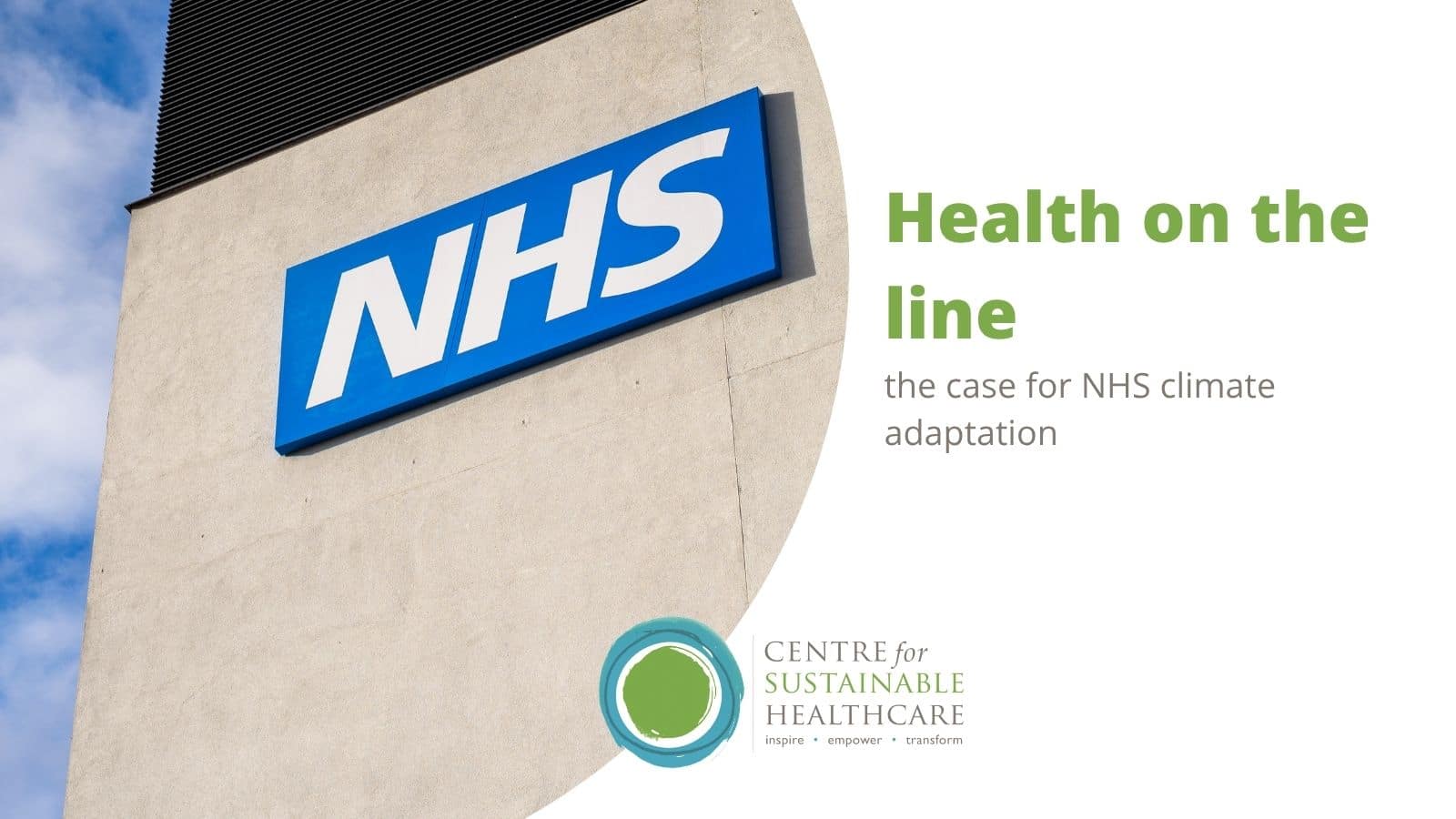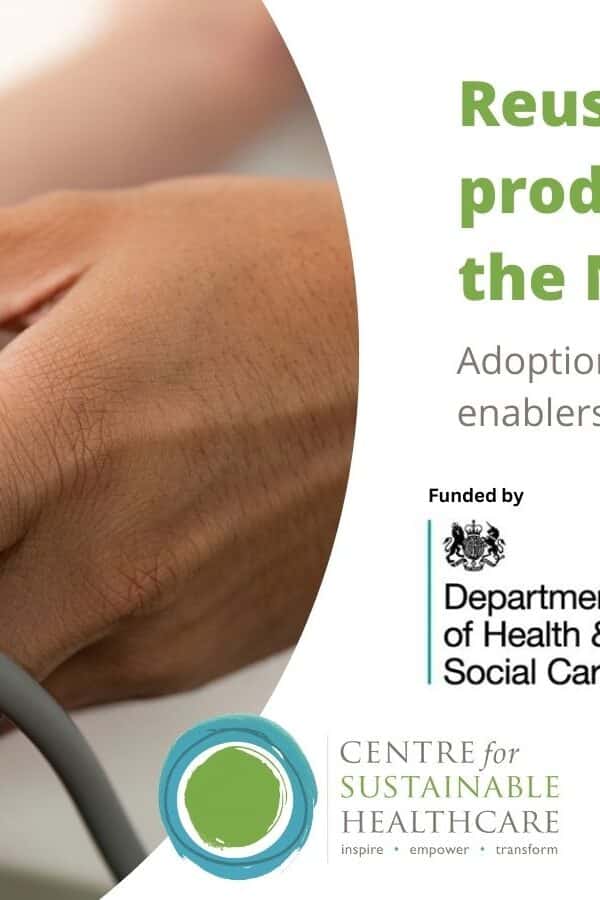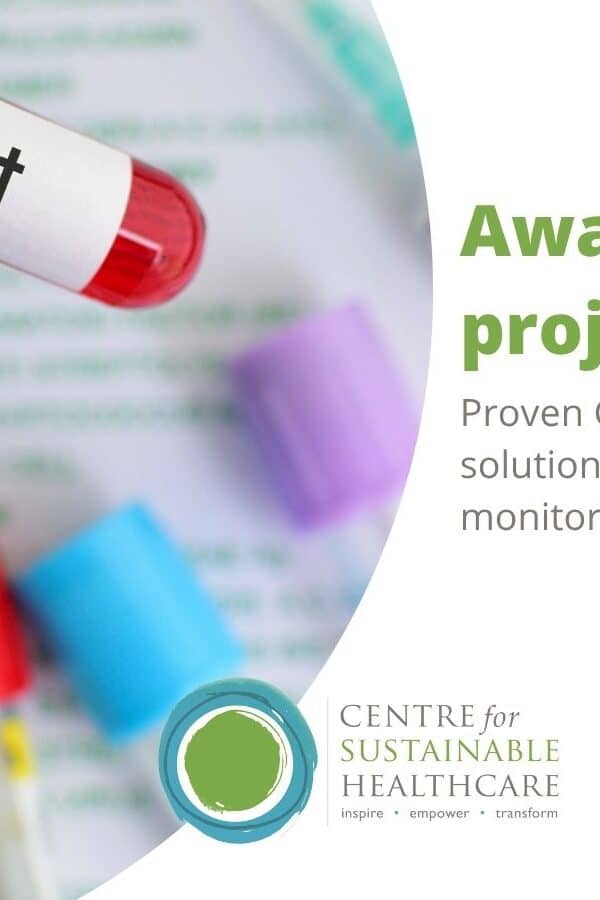The climate crisis is no longer a distant future risk, it is a current and growing threat to the delivery of safe, effective healthcare across the UK. Disrupted IT systems during heatwaves, flooded hospitals, and vulnerable patients increasingly exposed to environmental stressors are no longer warnings—they are today’s reality.
The new policy report from the UK Health Alliance on Climate Change, Building a Climate-Resilient Health System in the UK, brings this into sharp focus. It urges action across governments, NHS bodies, public health agencies and local authorities to urgently strengthen the resilience of our health system.
At the Centre for Sustainable Healthcare (CSH), we fully support these recommendations and see them not only as a health imperative, but as a powerful economic case for investment in a more sustainable and equitable future.
This message is echoed in a recent World Resources Institute report on climate adaptation finance. Evaluating 320 climate resilience investments in 12 countries, the study found that every $1 invested in adaptation yields over $10.50 in benefits, including avoided losses, economic value creation, and wider social and environmental returns. In health, adaptation is not just a protective measure, it’s an opportunity.
The NHS cannot afford to delay adaptation
The UKHACC report highlights how climate adaptation has lagged behind progress in cutting emissions. While the NHS’s net zero commitment is a global first, adaptation has received far less attention, and the consequences are becoming more visible with each heatwave or storm.
We cannot protect health without resilient infrastructure, climate-aware staff, and place-based models of care that prioritise prevention, wellbeing and equity.

“We must stop seeing climate adaptation as a cost and start recognising it as an investment in health, safety and economic resilience. The benefits—environmental, social, and financial—are too great to ignore.”
Rachel Stancliffe, Founder and Director, Centre for Sustainable Healthcare
Education for resilience: reflections from the UKHACC roundtable
To help advance this agenda, David Cameron, Education Director at the Centre for Sustainable Healthcare, attended the UKHACC roundtable at the Royal College of Physicians on 20 June 2025. The event brought together cross-sector leaders to identify urgent actions and long-term solutions for building a climate-resilient UK health system.
One clear theme emerged: education is a cornerstone of resilience. Healthcare professionals across all roles and disciplines need the knowledge, confidence and leadership support to respond effectively to climate-related health risks.

“We need to treat climate education as essential training, not an optional extra. Building resilience starts with building understanding, at every level of the health system.”
David Cameron, Education Director, Centre for Sustainable Healthcare
Through CSH’s education programmes, 886 professionals from around the world were trained last year in sustainable healthcare principles, spanning climate-informed care, sustainable quality improvement, and clinical leadership. These programmes directly support workforce preparedness, as called for in the UKHACC report.
Our Sustainability in Quality Improvement (SusQI) framework, now embedded across multiple NHS organisations and education providers, helps staff integrate sustainability and resilience into their day-to-day improvement work. It equips them not only to identify risks, but to create change, reducing emissions, improving outcomes, and future-proofing care delivery.
Investing in systems that protect health
Like the projects analysed in the WRI report, investments in adaptation can offer multiple dividends, from reduced disruption and long-term cost savings to strengthened communities and improved equity. But that requires a shift in mindset and funding priorities.
The UK and devolved governments must:
- Invest in infrastructure upgrades that withstand extreme weather
- Integrate adaptation into health strategy, Green Plans and regulation
- Fund education and leadership programmes that build system-wide capacity
- Support place-based and nature-positive solutions, such as green infrastructure and active travel
- Ensure health inequalities are not worsened by climate impacts
Working together for a resilient health future
The Centre for Sustainable Healthcare is ready to support NHS organisations and health professionals in taking forward this work. Through clinical education, research partnerships, network-building and place-based projects like NHS Forest and Green Health Routes, we are helping healthcare systems become more sustainable and more resilient.
If we act now, with commitment and collaboration, we can ensure that health systems not only survive climate shocks, but lead the way in creating a fairer, healthier, low-carbon future.














